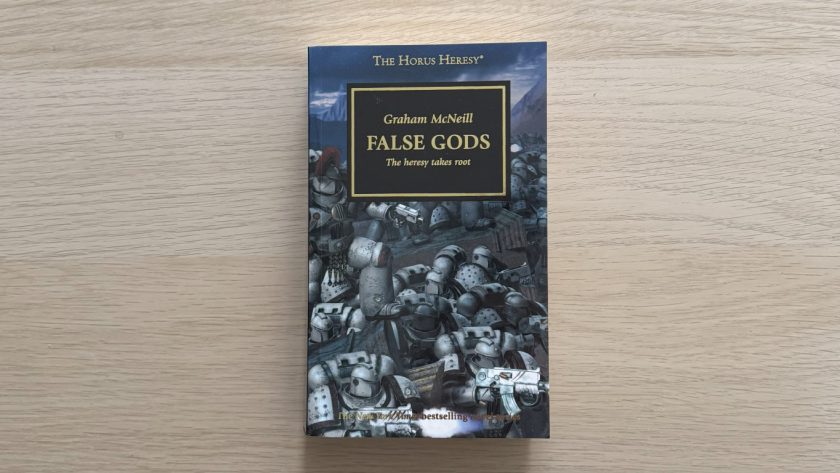False Gods had a big set of shoes to fill. The sequel to Dan Abnett’s Horus Rising continues the story of Horus, the Warmaster, as he struggles under the weight of his responsibility in a galaxy that insists on questioning the righteousness of his Great Crusade.
It doesn’t quite live up to the challenge. Abnett’s prose was rich and detailed, vividly bringing the galaxy of the 31st millennium to life and populating it with interesting and varied characters facing a number of complex moral conundrums.
False Gods feels lesser – McNeill is an accomplished writer, but this sequel is not as well written as its forebear. It also deals with the subject matter in a clunky way, delivering a narrative that feels like it’s skipped over what the main story is actually supposed to be.
Horus is a changed man following the stuff that happened with the Interex at the end of the first book. The Warmaster has become sullen and withdrawn, and Captain Loken, one of Horus’s most trusted friends and advisors, struggles under the weight of his growing doubts about the mission, his role in it, and the motives of the Warmaster himself.
McNeill has deftly picked up the characters, setting and difficult moral and ethical questions of Horus Rising and expands upon them well. While the writing lacks the artistry of the first book, the themes and the characters move forwards without the feeling that there is a different writer at the helm.
There are, however, a few big issues with the way the story is told that undermine it.
Given all the brilliant groundwork laid out in Horus Rising, there was so much material here to create a really compelling story about a character struggling between loyalty and doing the right thing.
If you know anything about the Warhammer 40,000 universe, you know that Horus becomes the main villain during the Great Crusade (I don’t consider that a spoiler given that this series of novels is called the Horus Heresy). But he makes the jump from sympathetic character to something of a Hollywood villain very quickly in this book, and due to an unsatisfying set of circumstances.
(I should note that I expect these books were all planned out by Games Workshop, so I don’t think McNeill necessarily made a lot of the choices that shaped the book.)
All-in-all, False Gods is still a gripping novel that I absolutely flew through, and I’ll definitely be reading the third instalment in the series to see how the story unfolds.
But what originally drew me to this series was that key question: how could the most loyal and beloved of the Emperor’s followers turn on him? And, if I’m honest, False Gods delivers an underwhelming payoff to that question, despite having so much rich and nuanced material to draw from to create a real tragic story.
This should have been the story of how the Great Crusade split apart under the weight of its own hypocrisy; a story of how Horus came to doubt the righteousness of his mission and reached the unthinkable conclusion that the Emperor is in the wrong.
Instead, the punchline is essentially ‘evil forces are at work’.
A swing and a miss.


